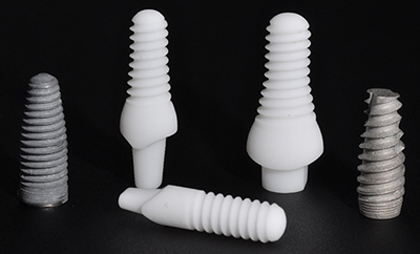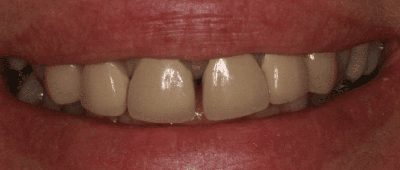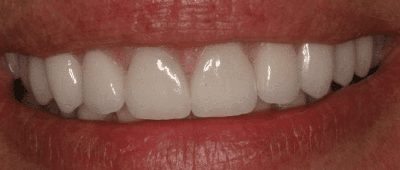If you need dental implants, should you request titanium or zirconia implants? Consider a few facts about your options.
Titanium Dental Implants
The first titanium dental implant was placed in 1965. Since that time, there has been extensive research on titanium implants for their efficacy and biocompatibility. Titanium is also commonly used for joint and bone replacement throughout the body.
If the desire to receive metal-free treatment is motivating your search for alternatives to titanium implants, give consideration to the reasons you really want non-metal dental implants. Certain metals are essential for human life, including:
- Calcium
- Colbalt
- Copper
- Iron
- Magnesium
- Manganese
- Zinc
Although titanium isn’t essential for life, it has proven to be biocompatible with human oral tissue.
A study published in the September 2018 issue of Clinical Oral Investigations shows that the success of dental implants is largely dependent on professional maintenance and practicing excellent oral hygiene at home. Patients who received follow-up care every three months after initial placement of an implant showed minimal signs of inflammation around the implant within the first year.
What about Zirconia Implants?
Zirconia implants were first used in 2005. In 2011, they were approved by the FDA for use in the USA. Zirconia, or zirconium dioxide, is a high-strength ceramic. Its recent introduction into implantology means that less research is available than with titanium implants. Additionally, since the technology is relatively new, fewer dentists and oral surgeons place zirconia dental implants.
Zirconium implants are white, so over time, they are more aesthetically pleasing than titanium, which can show through as a dark line at the gumline. Even if you choose titanium, a skilled cosmetic dentist will ensure you receive natural-looking results.
How Do Titanium and Zirconia Compare for Oral Health?
A 2016 study published in Clinical Oral Investigations compared zirconia and titanium implants. Plaque index (PI), gingival (gum tissue) index (PD), probing depth (PD), and bleeding on probing (BOP) were examined in dental implants that had been integrated with the bone for at least 1.2 years, but on average 2.2 years. GI, PD, and BOP were higher around dental implants than around natural teeth. But no significant difference was found between zirconia and titanium implants.
Titanium (metal) and zirconia (white) dental implants
What Should You Do?
- Schedule consultations with at least two skilled implant dentists to discuss your concerns. At least one of the dentists should have extensive experience with zirconia implants—or partner with an oral surgeon who has the experience.
- If you think you have metal allergies or sensitivities, schedule an appointment with an allergist to find out if titanium will present any issues.
- Depending on the number of teeth you’re replacing with dental implants, the implants will be restored with dental crowns or dentures. Find a cosmetic dentist to provide lifelike crowns or dentures.
This post is sponsored by Lowell, MA accredited cosmetic dentist Dr. Michael Szarek.



